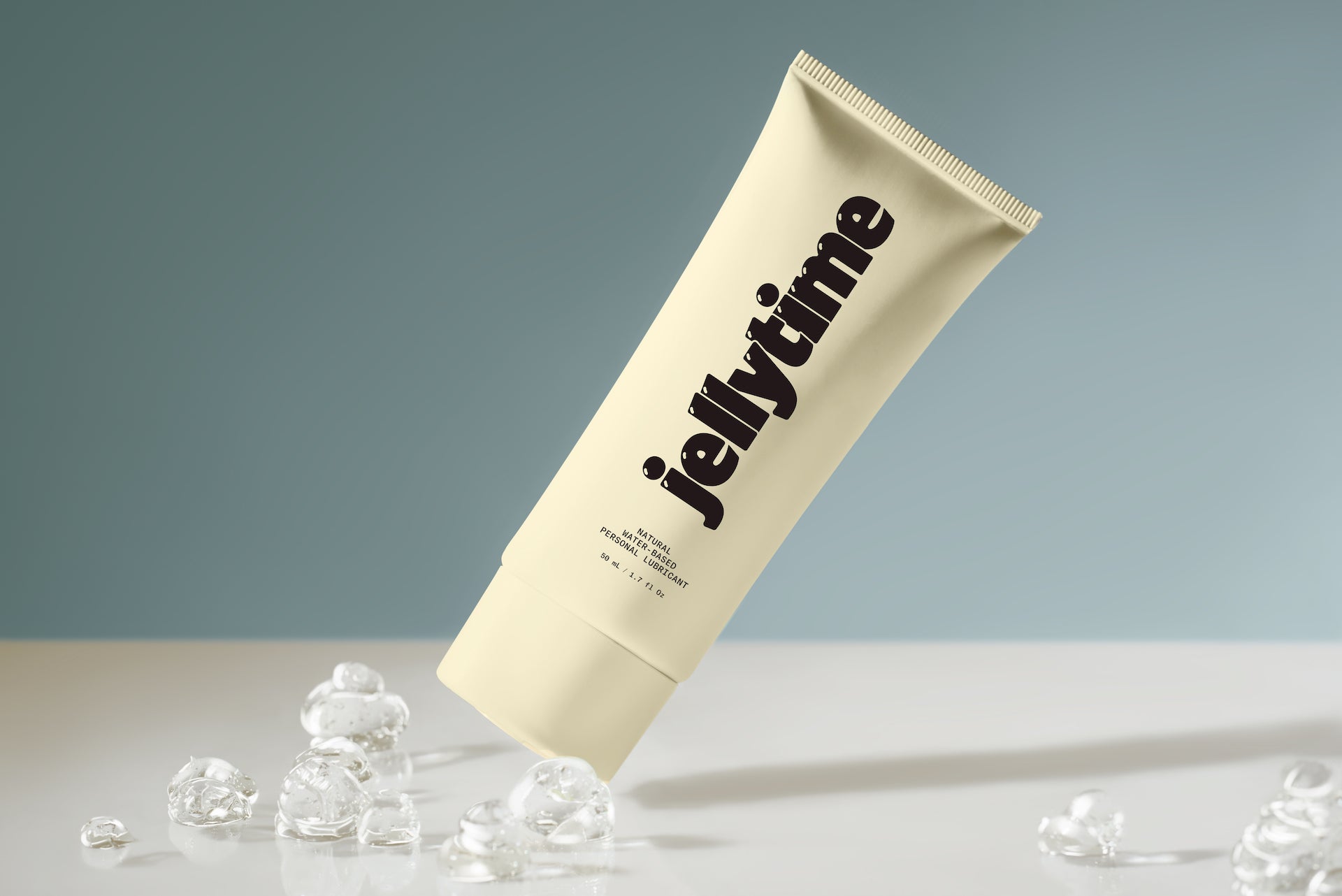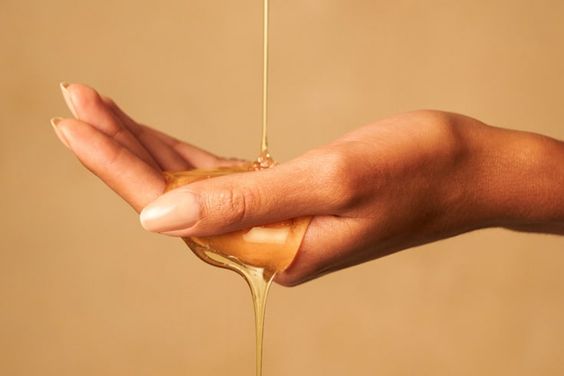
When it comes to enhancing the intimate experience, the quest for the perfect lubrication is an age-old endeavor. In this journey, castor oil emerges as a promising contender, offering a natural and effective alternative to traditional lubricants. But before you embark on this new path, the question lingers: Is castor oil truly suitable for such an intimate endeavor? Fear not, for we're about to embark on an informative exploration of this intriguing option.
Can Castor Oil Be Used as Lubricant for Intercourse?
Yes, castor oil can indeed be used as a lubricant for intercourse. Its viscous and moisturizing properties make it a promising option for enhancing intimacy naturally. However, there are important factors to consider when incorporating it into your intimate routine.
Things to Keep in Mind When Using Castor Oil as Lube
Compatibility with Barrier Methods: Castor oil, like other oils, can compromise latex or polyisoprene barriers such as condoms, dental dams, and diaphragms. This renders them ineffective as protection against pregnancy or sexually transmitted infections (STIs). If you rely on these barrier methods, it's crucial to opt for water-based or silicone-based lubricants that won't degrade them.
Potential Chemical Interactions: Castor oil can enhance the transdermal absorption of adjacent chemicals. This means that if other chemicals are present, like those found in spermicides or leached from low-quality sex toys, they may be more readily absorbed by the skin. This could increase the risk of irritation or other health effects associated with these chemicals.
Vulnerability to Infections: Oil-based lubricants, including castor oil, may not be ideal for vaginal intercourse. They can leave users vulnerable to yeast infections or bacterial vaginosis, especially if individuals are prone to either of these conditions.
Comedogenic Properties: Castor oil is comedogenic, which means it can clog pores. This might trap bacteria beneath the skin's surface, leading to skin irritation, breakouts, or infection.
Unsuitability for Oral Sex: Castor oil has a laxative effect and a notably unpleasant taste. Consequently, it's not recommended for use in oral sex.
Cleanup and Staining: Oils, including castor oil, can be challenging to remove from the skin, especially after vaginal or anal sex. They may also stain fabrics.
Using Castor Oil as Vaginal Lube
Using castor oil as a vaginal lubricant may not be advisable due to several reasons, including its impact on pH levels, compatibility with sex toys, and potential interactions with diaphragms. Additionally, oil-based lubricants like castor oil can compromise barrier methods and increase vulnerability to infections. To ensure a safe and enjoyable sexual experience, it's generally recommended to opt for water-based or silicone-based lubricants for vaginal intercourse. These alternatives are typically more suitable and less likely to pose these concerns.
Using Castor Oil as Anal Lube
While oil-based lubes like castor oil can be praised for their long-lasting and friction-reducing properties, there are essential considerations for anal intercourse. Ensure that the condoms you use are compatible with castor oil. Only lambskin, nitrile, or polyurethane condoms are safe with castor oil, although the former offers no STI protection. Be cautious with anal or pegging toys, avoiding those made of jelly, rubber, or latex, as they may degrade when in contact with castor oil. Cleanup after anal sex with castor oil can be challenging, as it may stain fabrics. Alternative, body-safe anal lubricants may be more suitable.
In conclusion, while castor oil might have its merits, its use as a sexual lubricant should be carefully considered. It's vital to prioritize safety, comfort, and barrier method integrity when making your decision. If you have any doubts or concerns, consulting with a healthcare provider or sexual health expert can provide personalized guidance.
Benefits of Using Castor Oil for Intercourse
Derived from the castor plant, Ricinus communis, castor oil holds scientifically-backed benefits that elevate intimate experiences. Its unique composition offers more than just lubrication – it promotes overall well-being in intimate moments.
Castor oil's rich content of ricinoleic acid ensures natural hydration and nourishment. This fatty acid creates a protective barrier, reducing friction and potential discomfort during intimacy. Its anti-inflammatory properties contribute to a gentler experience, especially for sensitive areas.
The viscosity of castor oil minimizes friction, enhancing comfort and pleasure. The oil's natural origin makes it a gentle choice, avoiding synthetic chemicals common in other lubricants. This holistic approach to intimate care ensures immediate satisfaction while prioritizing long-term well-being.
Castor oil, with its hydrating properties, enriches sensitivity and sensation during intimate moments. By diminishing discomfort and fostering a smoother experience, it empowers individuals to fully immerse themselves in the intimate connection.
While it's essential to remember that individual sensitivities can vary, castor oil generally poses a lower risk of irritation and allergic reactions compared to lubricants containing synthetic compounds. Its chemical-free nature minimizes the potential for adverse skin reactions, making it a gentle and well-tolerated option for many individuals.
What is castor oil made of and is it safe?
Castor oil, renowned for its diverse applications, derives its origin from a botanical marvel – the seeds of the castor plant (Ricinus communis). This natural source offers a wealth of benefits when harnessed for intimate wellness, shedding light on a meticulous extraction process that unlocks its potential.
The journey of castor oil begins with the seeds of the castor plant, carefully collected to preserve their potency. The extraction method of choice is cold-pressing, a gentle process that ensures the oil retains its vital nutrients, antioxidants, and fatty acids. This meticulous technique involves mechanically pressing the seeds at low temperatures, preventing heat-related degradation that might diminish the oil's beneficial properties.
Castor oil's cold-pressed nature makes it a potent reservoir of ricinoleic acid, a monounsaturated fatty acid renowned for its anti-inflammatory, antimicrobial, and moisturizing attributes. When applied, this acid forms a nourishing barrier that contributes to lubrication, reducing friction during intimate moments.
Once extracted, castor oil finds its way into an array of applications, including intimate lubrication. Its natural viscosity and skin-friendly qualities make it an appealing choice for enhancing pleasure and comfort during intimacy. As individuals seek alternatives to synthetic and chemical-laden products, castor oil stands out as a holistic option that aligns with the body's natural rhythms.
Castor oil is generally considered safe for use as a lubricant; however, it's essential to exercise caution and follow safety guidelines. Before using castor oil during intercourse, conduct a patch test on a small area of skin to ensure you don't experience any adverse reactions. Additionally, if you have any existing skin conditions, allergies, or sensitivities, it's advisable to consult a healthcare professional before incorporating castor oil into your intimate routine. Lastly, its advised to begin with a small amount to gauge how your body reacts to the oil. Adjust the quantity as needed based on your comfort level.
Castor Oil Alternatives
If you're hesitant about using castor oil as a sexual lubricant or want to explore other options, there are several alternatives available. Here are some alternatives to consider:
Water-based lubricants are one of the most popular choices for sexual lubrication. They are compatible with various condom types, dental dams, and sex toys. These lubricants are easy to clean, won't stain fabrics, and are suitable for both vaginal and anal intercourse.
In the realm of lubrication alternatives, Jellytime offers Natural Water-based Personal Lubricant as an outstanding option. Their hypoallergenic, water-based lubricant is specially designed to elevate your intimate experiences. Enriched with nourishing plant-derived ingredients like aloe and Hyaluronic Acid, it's tailored to enhance and amplify your body's natural moisture.
Here's why Jellytime stands out as an excellent choice:
- Fragrance-Free: Say goodbye to artificial scents and embrace a pure and unscented lubricating experience.
- pH Balanced: Carefully formulated to maintain the optimal pH balance, it's gentle on sensitive skin.
- Safe with Toys and Condoms: You can confidently incorporate Jellytime into your intimate moments with toys and condoms without worry.
Silicone-based lubricants offer exceptional longevity and are compatible with most condom types and sex toys, except those made of silicone. They provide a silky, long-lasting glide and are particularly suitable for anal sex. However, they can be a bit more challenging to clean.
While castor oil falls into this category, there are other oil-based lubricants designed specifically for sexual use. These oils are often formulated to be body-safe and may include ingredients like coconut oil, avocado oil, or jojoba oil. However, they should not be used with latex or polyisoprene barriers.
Natural or organic lubricants can be either water-based or oil-based and are formulated with natural ingredients. They are a good choice if you prefer products with minimal synthetic chemicals. However, always check the ingredient list for any potential allergens.
Pure aloe vera gel can serve as a natural, water-based lubricant. It's gentle on the skin and can be an excellent option for those with sensitivities. However, it's not compatible with latex or n mind polyisoprene barriers.

Using castor oil as a natural lubricant for intercourse can be an intriguing and healthy alternative to commercial products. With its non-chemical nature and moisturizing properties, it presents an option for a smoother and more comfortable intimate experience. However, it's essential to approach its use with caution, conducting patch tests and consulting professionals when necessary. By embracing this natural optionally, you can explore heightened intimacy while prioritizing your safety and well-being.






